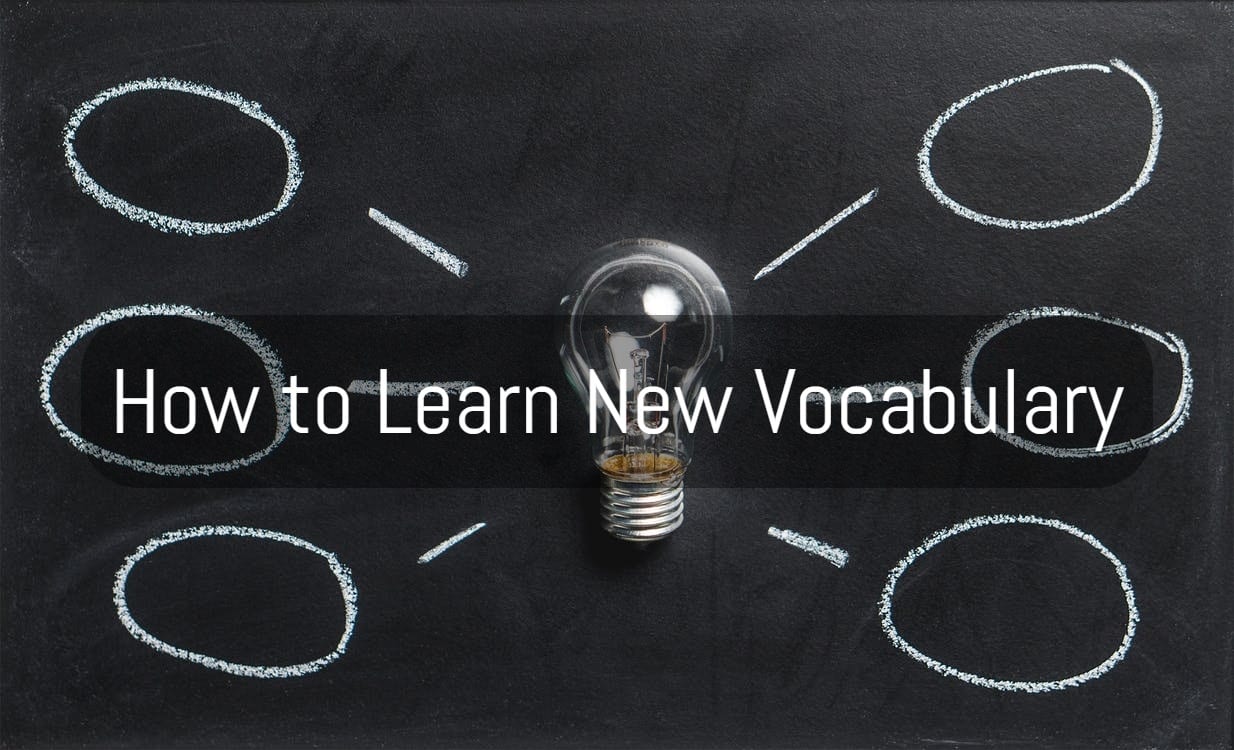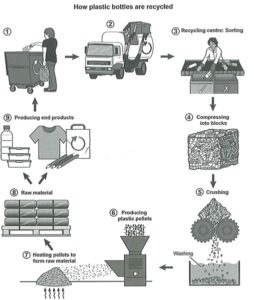Learning new vocabulary might be difficult for some learners. Many complain that they learn a lot of words every day but can’t use them in their speaking or writing. Some even become frustrated after making lots of mistakes while using them. For example, they use a word in a situation that is not appropriate, and this makes their speech sound unnatural. Here are the tips that can help you learn new words effectively:
Learn new vocabulary in context
Read books, magazines, articles; watch movies, TV shows, Ted-Ed videos; and play games with English language turned on. Find ways to expose yourself to English and have fun doing them. When you see new words, idioms, or phrases within stories, articles, movies, shows, games, or even an interesting sentence, you will find it a lot easier to remember and use them.
Learn new words with their collocations
Collocation is the way some words are often used together. For example, you can say make a mistake but not do a mistake. Even though it may sound correct to some non-native speakers, do a mistake isn’t normally used by a native speaker. You need to know how to use words together, otherwise your speech will sound unnatural.
Write down the new words
This is one of the most important steps in learning vocabulary. It helps you memorize how it is spelled and make fewer dictation mistakes when using it in your writing later. Additionally, having an organized record of the words you learn helps you review them faster. So, a good thing to do is keep words in a notebook, Microsoft Word document, flash card application, etc. Choose the way that is the most comfortable to you and record the vocabulary items you learn each day.
When you learn a word with multiple meanings, don’t try to memorize all of them at once
It might feel satisfying to learn all the meanings of a word and be done with it, but it’s not an effective way to learn words. For one thing, not all the meanings are common; therefore, spending your time and energy on them is not a good idea. For another, it makes it frustrating to review the words, and you will end up hating learning new words. So, record one definition at a time and come back for more when you need to learn a different meaning.
Review the newly learned vocabulary the right way
The best way to review vocabulary is to make sentences with them. When you use a new word in a sentence, it creates a new connection in your brain. By using that word again and again later, that connection gets stronger until it becomes so strong that you won’t forget it even if you don’t use it for a while. But it’s not enough! A newly learned word becomes a part of your passive vocabulary first, meaning that you can understand a speech or text that uses it, but you are not able to use it in your own. To turn such words into your active vocabulary, the ones you use when you talk or write, you need to make lots and lots of sentences with them. For example, you can use them to describe your personal experiences, people you know, or pictures you see on social media. Personalizing is very important in turning passive vocabulary into active.
Avoid translation
If you take an English course, the first thing your teacher will tell you is avoid translation because translation is the enemy of fluency. You may memorize lots of words through translation, but you won’t be able to use them appropriately without reading their English definition. You need to know which words are appropriate for a certain situation. For example, hi and hello are translated into one word in many languages, but in English hi is informal and should be used with friends and the people that are close to you. Hello, on the other hand, is more formal and should be used when you are talking to people that are not that close to you. That is not to say you can’t use the word hello when talking to your best friends, but it won’t sound natural.
Find connections between the words you learn
When you learn a new word, try to ask “what is its synonym? What is its opposite? Does it have any kind of connection with a word that I already know?” Making connections is the best tool for your brain to retain information. However, you should always pay attention to the little differences that the words with close meanings have. For example, the words interesting and exciting are often used interchangeably by learners, but they shouldn’t.
Exciting: Making you feel very happy. For example, when you are playing a game and you keep winning, you say, “Oh, my God! I can’t believe this is happening. This is so exciting. Hahaha! “
Interesting: Making you pay attention. If something is interesting to you, you want to know more about it. It makes you curious. For example, think about the last time you tried to find the answer to a question on the internet. You didn’t have to, but you wanted to know the answer because you were interested.
This is the sort of connection that you should be looking for when you are learning different words with close meanings.
Always use a good dictionary but never try to read it cover to cover
Every language learner knows how important dictionaries are, but they sometimes make the mistake of reading one cover to cover. Learning vocabulary just by reading a dictionary will in fact ruin your fluency because they include many, many old-fashioned words and phrases. If you learn every word in a dictionary, you will end up knowing tons of words and phrases that are not used by modern speakers of English. Such vocabulary items are called archaic words. The best way you can benefit from a dictionary is by looking up the unfamiliar words that you see or hear.
Important question: How about vocabulary lists or books? Should we avoid them? Are they useless?
Answer:
There is no doubt that learning new words in context is the best way. However, sometimes people want to or need to learn specific types of vocabulary in a short time. For example, you are a businessman who has learnt English as second language, but you are unfamiliar with the terminology related to your job. So, you start learning a list of words that can enable you to use the language in your job. This is where topic-specific word lists like the one on ESL Fluency can come in handy, but you should know one important thing: they are easy to learn but also very, very easy to forget if you don’t review them regularly.
In short, words in topic-specific vocabulary lists might not be as easy to remember as the words you learn naturally through reading books or watching movies, but they can be useful with the right amount of practice.
Finally, here are three excellent online dictionaries for learners:
Longman Dictionary of Contemporary English
Articles to read and improve your language skills
Follow us on YouTube for more tips and resources.







